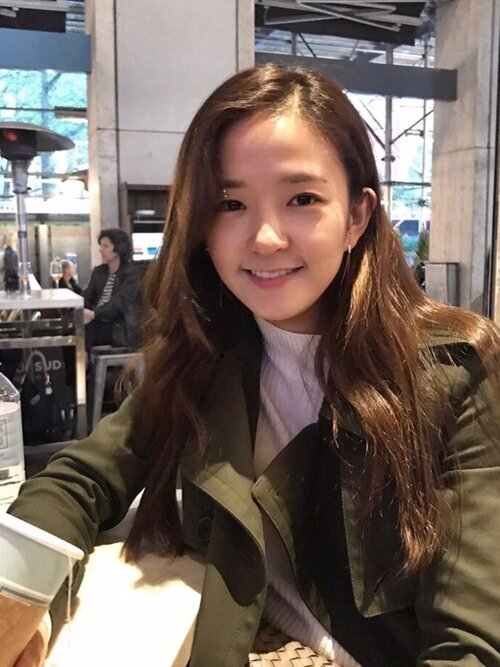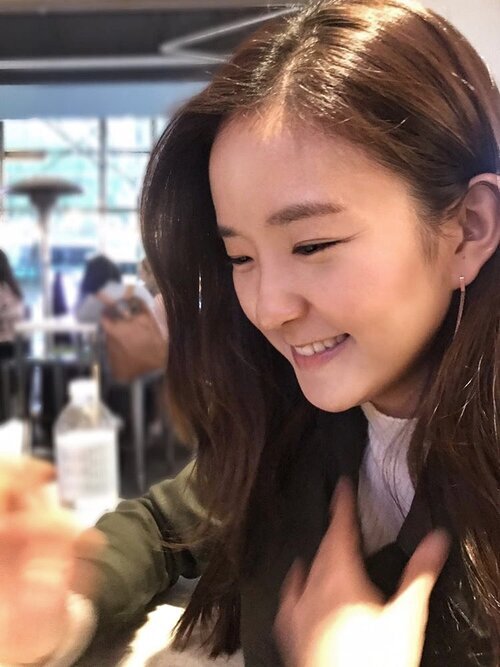Interview with Yoojin Jang
One cold morning in my last year at college, I woke up to see “Yoojin Jang, 15 missed calls” displayed on my screen — and immediately after, I started to hear the buzzer going off every other second. Half asleep, I pick up the phone and hear her yelling, “Mari, our train leaves in 15 minutes!” I rushed out the door, panicked, pulling my half-packed suitcase… and that was the morning we took the train from Boston to New York for the Marlboro audition. We barely made it to the train and soon were laughing at the irony of me being the irresponsible one on this important day, when she realized a few minutes later that she’d left all her sheet music for the audition at home! Half a year later, we would be sharing this story with others at Marlboro Festival.
This is one of the many memories I have with Yoojin — she was my best friend at college and we did absolutely everything together, to the point people started calling us ‘the twins’. But I didn’t just see her as a best friend, I’ve always admired and respected her as a violinist. She is an incredibly talented, natural player who is able to capture the audience with her dazzling technique, stage presence, artistry and pure joy for music. I’m so excited to play a string quartet with her again (it’s been 8 years!) in the upcoming performances of our new program — Janáček in Persona!
Yoojin and I, back in 2011
So, what was the first piece by Janáček you’d ever heard?
His first string quartet, performed by Mari Lee at Marlboro Festival! No, just kidding. I’m sure I’d heard other pieces by him before — like the violin sonata, the string quartets, maybe even his songs. I don’t know when, though. It’s all a bit blurry. But when you performed his music, it really hit me for the first time. I’ll definitely remember that. So that might as well be the first piece I heard!
How would you describe his music?
Conventional, but really dramatic at the same time. And there’s definitely a spoken quality to it. That’s what struck me most.
In our Janáček program, we will be exploring the theme of cultural identity. What culture do you identify with as a person?
I grew up in Korea and came to Boston when I was 19. I’ve been here for 8 years now, but I still go back to Korea every six months or so. Even though I’m comfortable in Boston and I call it my second home, I identify myself fully with Korean culture. That’s what I’m proud of.
Is there a musical culture or tradition that you feel especially close to?
I’m not sure. When I was a teenager, I played mostly German music. That’s the first music that I got used to and fell in love with. Now, I’m exploring other cultures — French, contemporary American, etc. But I still feel closest to German music.
Did you ever feel that you had to fight for recognition because of your cultural background?
I’ve been doing competitions for almost 15 years — both national and international. With each year, I’ve seen more Koreans competing alongside me. It’s very nice that we have such a strong community of Korean violinists. Each of us is fighting for our individual careers, but at the same time we’re all fighting for our nation on the world stage. So I think it’s a win-win for everybody, because wherever I go to perform a concert, I always meet some Koreans musicians and I feel a lot of support from them.
Yeah, I guess even if you are competing against other Korean musicians, it’s doing good for Korean community overall, because when one of you wins a competition, he or she will be distinguished in the international community and you can be proud of them.
In the end, we’re all colleagues!
If you could ask Janáček one question what would it be?
I’d like to ask him how his career unfolded, how he was able to achieve international recognition as a Czech composer.
Actually, that’s exactly what we’ll be exploring in our program — and you’ll find out, very soon!
Interviewed on May 3, 2019
To find out more about Yoojin, visit her website!




